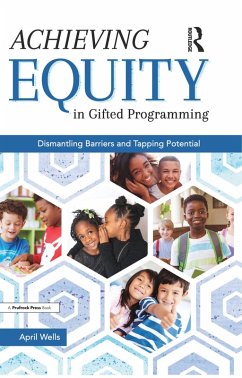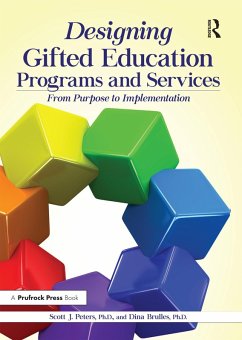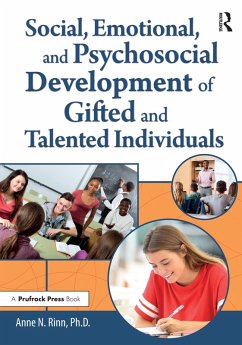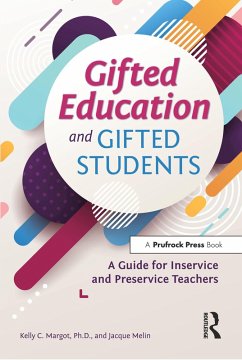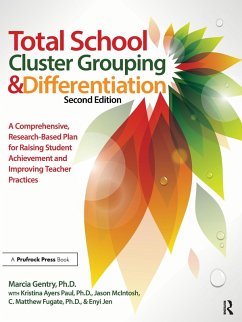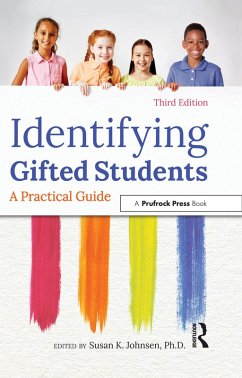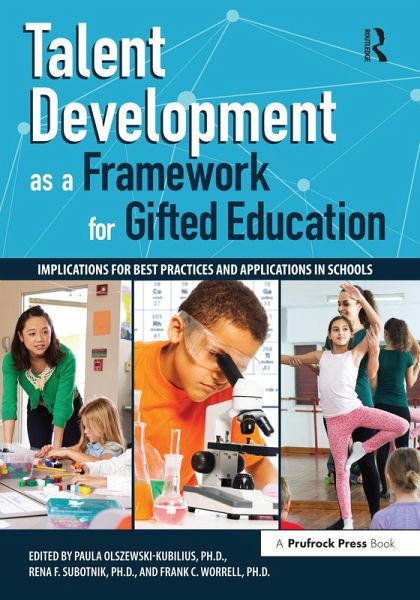
Talent Development as a Framework for Gifted Education (eBook, PDF)
Implications for Best Practices and Applications in Schools
Versandkostenfrei!
Sofort per Download lieferbar
48,95 €
inkl. MwSt.
Weitere Ausgaben:

PAYBACK Punkte
24 °P sammeln!
"Talent development,Äù is a phrase often used in reference to the education of gifted children. Recently, it has been presented by researchers to refer to a specific approach to the delivery of gifted education services.
Dieser Download kann aus rechtlichen Gründen nur mit Rechnungsadresse in A, B, BG, CY, CZ, D, DK, EW, E, FIN, F, GR, HR, H, IRL, I, LT, L, LR, M, NL, PL, P, R, S, SLO, SK ausgeliefert werden.






